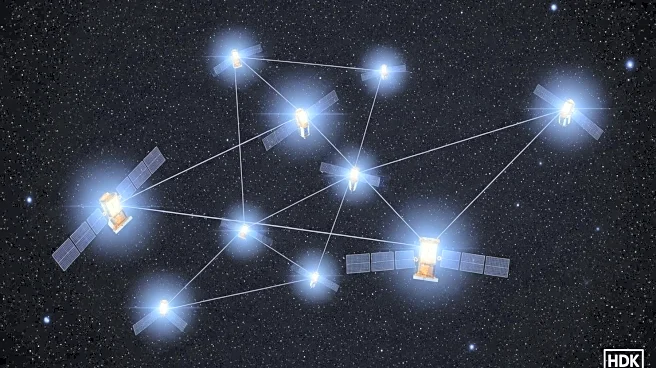What is the story about?
What's Happening?
The space community, including state agencies, private firms, and non-profit organizations, is playing a crucial role in international diplomatic and humanitarian efforts. This development is highlighted by the United States-led Artemis Accords and the China-led International Lunar Research Station partnership. The focus is on using space technology to support health and emergency services, with initiatives like the NASA-supported consortium producing cholera risk forecasts for Yemen. These efforts demonstrate the potential of space technology in preventive diplomacy and humanitarian aid, emphasizing the importance of open data collaboration and rapid access to satellite resources during crises.
Why It's Important?
The integration of space technology into humanitarian efforts has significant implications for global health and emergency response. By leveraging satellite data, organizations can predict and respond to health crises more effectively, potentially saving lives. This approach also highlights the need for international cooperation and the establishment of protocols to ensure the rapid deployment of satellite resources in emergencies. The involvement of NGOs and private sectors in these efforts underscores the importance of flexible and innovative solutions in addressing global challenges. The success of these initiatives could lead to more widespread adoption of space technology in humanitarian and public health sectors.
What's Next?
Future steps involve protecting humanitarian space services and ensuring the legal status of satellites supporting medical and emergency services. There is a call for standardizing emergency access to commercial satellite capacity and keeping Earth observation data open for public health use. Governments, NGOs, and private sectors are encouraged to co-fund pilot projects that extend satellite-enabled services to underserved areas. These actions aim to enhance global health security and resilience, with a focus on measurable human impact. The ongoing development of space diplomacy frameworks will likely continue to evolve, emphasizing cooperation and the strategic use of space technology for humanitarian purposes.
Beyond the Headlines
The broader implications of these developments include the potential for space technology to transform public health infrastructure, particularly in remote and underserved regions. The use of satellite broadband for telemedicine, as seen in rural Appalachia and Guyana, illustrates how space technology can overcome traditional barriers to healthcare access. This shift towards space-enabled solutions may also influence policy-making, encouraging governments to prioritize investments in space technology as a means of enhancing national resilience and global health security. The evolving role of space diplomacy highlights the need for sustained investment and protective protocols to ensure the continued success of these initiatives.















